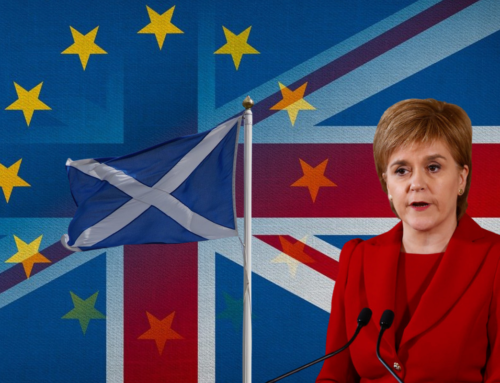by Brendan Donnelly
This article first appeared on euroblog, the Blog of the European Movement: http://euromove.blogactiv.eu/
During the referendum on voting reform in 2011, it was sometimes claimed by advocates of the present British electoral system, misleadingly known as “first past the post,” that it tended to produce definite outcomes, with clear Parliamentary majorities for the winning party. This claim may well have been true in the days when the Conservative and Labour Parties between them accounted for three quarters or more of the total votes cast. The growing fragmentation of British political allegiances has now however turned our electoral system into a statistical lottery, which will be painfully demonstrated in the General Election. No party is likely to have a majority, and the overall result will be disfigured by a range of anomalies. The Liberal Democrats will almost certainly obtain many more seats than will the Greens or UKIP, although they may well receive fewer votes nationally than each of these other parties, perhaps significantly fewer in the case of UKIP. Although the SNP will receive a substantially smaller share of the national vote than either the Greens, the Liberal Democrats or UKIP, it may well end up with as many seats in Parliament as those three parties combined. All observers of British elections know that for any given percentage of the national vote accruing to Labour or the Conservatives, Labour will obtain more seats from that percentage than will the Conservatives. If by any chance Labour or the Conservatives did achieve an absolute majority, it would be with the support of just over one third of those voting.
Quite apart from the exclusively domestic matters at issue in May, Britain’s future in the European Union will be greatly affected by the results our idiosyncratic electoral system generates for the next Parliament. It is only if Labour is able, alone or in coalition, to construct a government likely to last for five years that the uncertainty around British membership will be dissipated. Labour has said often and forcefully that it would only put the question of British membership of the Union to a referendum if it wished in government to sign a further European Treaty involving significant further sovereignty-pooling by the United Kingdom. No such prospect is imminent or indeed likely in the foreseeable future. If the Parliamentary arithmetic allowed the Labour Party and, say, the Liberal Democrats to achieve together an absolute majority after May, the possibility of the European referendum pledged by the Conservative Party would recede into the distant future. Present predictions do not however suggest that even a coalition between Labour and the Liberal Democrats would suffice for a Parliamentary majority after the next General Election. Any Labour government would probably need to come to an arrangement with the SNP, an arrangement the terms and duration of which are extremely difficult to predict.
If on the other hand the Conservative Party is able to form the next British government, alone or in coalition, there will certainly be a referendum on the United Kingdom’s membership of the European Union. Uncertainty will continue however to attach to the date, the circumstances and the outcome of this referendum. There have been suggestions that Mr. Cameron, possibly in deference to the wishes of UKIP, may wish to hold an earlier referendum than his originally favoured date of 2017. This would be to recognize the unachievability of the radical renegotiation of the terms of British membership of the Union which many Conservatives favour and which Mr. Cameron has publicly supported until now. An early referendum would have the advantage from Mr. Cameron’s point of view of bringing the European issue more quickly to a head within his party. He will dread the prospect of two years of largely futile “renegotiation” with his European partners, accompanied by complaints from his backbenchers that he is not being ambitious enough in his demands. Nevertheless, Mr. Cameron must be aware that an early referendum will expose him to the accusation of abandoning the careful compromise that kept the Conservative Party together in the latter half of the last Parliament, a compromise to which significant renegotiation of the terms of British membership of the European Union was essential.
While it is true that a number of economically and socially influential forces are now more publicly expressing their concern at the prospect of Britain’s leaving the European Union, it would be a rash prophet who discounted the possibility of a referendum’s leading to British withdrawal from the Union. Years of propaganda against the Union, at best only half-heartedly countered by those who should have known better, have left a deep scar on the British political psyche. It is of course entirely possible that the General Election in May of this year will lead to a fragile and transitory government unable to resolve in any of the ways described above the festering European issue. We may well later this year or in the first half of next be confronting in a new General Election the same set of questions as we now face about Britain’s position within the European Union. The only certainty is that there will in any event be an important role for the European Movement over the coming years, whether in assisting the preparations leading up to a European referendum, or in countering more effectively than has been possible until now the often deliberate misrepresentation of the Union as a sinister, undemocratic monster lurking in Brussels and sucking the economic vitality out of the United Kingdom. Even if the next Parliament does not produce a European referendum, there may well be one at some stage in the future. It is not too early to start thinking now about the underlying state of public opinion and knowledge on European matters. An ill-informed British public may produce as unpredictable a result in a European referendum as our electoral system will in May, 2015.






